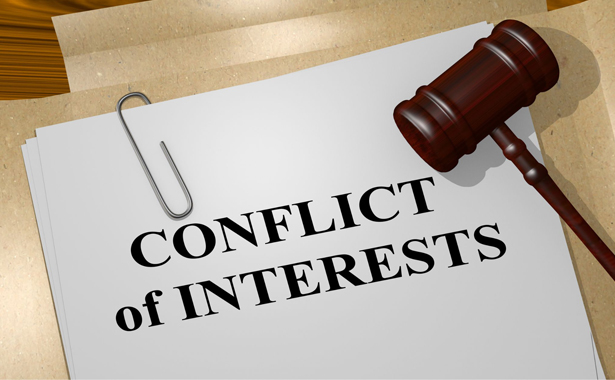Contents
Introduction
When you’re seeking legal advice, you need to be sure that your lawyer has your best interests at heart. There are many ways in which this can happen and one of them is by making sure that your lawyer does not have any conflicts of interest in their practice. The presence of a conflict of interest reveals a problem with representation because it may affect how the attorney will treat your case or what choices he or she makes during proceedings.
What is a Conflict of Interest?
A conflict of interest arises when a lawyer’s loyalty to one client or one side of an issue may make it difficult for the lawyer to provide objective and unbiased legal advice or services to another client or to a third party. For example, if you are representing Company A in a lawsuit, but your spouse owns stock in Company B, which is also being sued by Company A, you have an obvious conflict because your interests would be best served by having both companies lose their respective lawsuits.
What is the Motivation for Determining and Disclosing Conflict of Interest?
Conflicts of interest happen a lot in Family Cases and can affect the fairness and integrity of the legal process. It can also damage your reputation as a lawyer, especially if you fail to disclose it.
It is a legal concept and can be a problem in legal practice. It can also be an ethical problem, practical problem, or business problem.
Conflicts of interest are important because they may prevent you from providing independent legal advice to clients or effectively representing them in court. If you or another client of yours have a conflict of interest with your client, then you should not represent them in court or give them advice unless:
- You get their permission.
- There are other good reasons why it’s okay for you to do so.
What is the Impact of a Potential Conflict of Interest?
The impact of a potential conflict of interest is that it may affect the client’s interests. If you have a financial relationship with another party involved in your representation, you must make sure that your client understands the conflict and gives informed consent to proceed with the representation.
In some cases, even if there is no direct financial benefit for you or your firm from another party involved in your representation (such as when someone hires you because they like your ads), there may be indirect benefits from this other person hiring you–for example:
If someone hires me because they saw my ad on TV but knows nothing about law firms or lawyers generally, then I am likely at least partially responsible for getting them into contact with their lawyer (who might not otherwise have been hired). That’s why Lawyer Advertisement is important.
How Can You Manage a Conflict?
To manage conflicts, lawyers must disclose them to their clients. This includes identifying the conflict and explaining its possible effects on the representation. Clients must then give their informed consent before a lawyer can proceed with the matter.
Client Relationship Management – A Special CRM software specifically designed for lawyers such as RunSensible can be very helpful for attorneys to communicate better and build stronger Client-Attorney Relationships, helping them disclose everything so there is no ambiguity.
A written agreement should be drafted that sets out how the parties will manage any future conflicts arising from this engagement. It’s also important for lawyers to avoid entering into contracts where there may be potential for conflict (such as representing both sides in litigation). If a conflict does arise, monitoring it closely is crucial: if you don’t know about it, you won’t be able to resolve it!
What to do In Case of a Potential Conflict of Interest?
Disclosure is the first step in managing a conflict. If you have a potential or actual conflict of interest, you must make sure it is disclosed to the client as soon as possible. This can help prevent future problems and avoid being accused of misconduct. Having stable Client Communication methods with your clients can be very helpful in terms of disclosure:
- Disclosure ensures that your clients know about the potential for bias and allow them to make informed decisions about their case or transaction.
- Your disclosure helps ensure that there are no surprises later on in litigation or arbitration proceedings because all relevant information has been provided upfront during settlement negotiations.
- Disclosure also provides an opportunity for you to explain why this particular situation presented itself so that clients understand why certain steps were taken based on legal advice from another lawyer. In addition, if there was any mistake made along the way due to lack knowledge about how best proceed with matters then this would be easier resolve once everyone knows what happened.
How to Disclose a Conflict of Interest?
If you are a lawyer and have a conflict of interest, you must disclose it to your client. This is required by law and may also be required by your state’s ethics rules. The disclosure should be made in writing unless there are extraordinary circumstances that prevent such a disclosure.
In addition to disclosing the conflict to the client, you must also disclose the conflict to your firm if there is one involved in representing both parties (e.g. if another lawyer at your firm represents one party). If another lawyer does not join in on representing both sides of an issue or transaction involving their former clients, it may still be necessary for them to disclose any possible conflicts that could arise from prior work with those individuals or entities before entering into representation with those clients again–especially if they had access through privileged information during previous engagements between themselves and these same individuals/entities.
It’s important because knowing what kind of relationship existed between yourself/your firm and another party helps everyone involved determine whether further steps need taken before proceeding forward with legal action; additionally knowing what type of relationship existed between yourself/your firm gives others insight into how much confidence they should put into anything else said during meetings held between all parties involved.
Types of Conflicts of Interest in Practice
Conflicts of interest can be categorized into two types:
- Business Conflicts of Interest – These arise when a lawyer’s representation of a client may be materially limited by the lawyer’s own financial, business or property interests. For example, if you were to represent a client in litigation against another firm that had been your employer, there would be an inherent conflict between your loyalty to your former employer and your obligation to zealously advocate for your current client.
- Personal Conflicts of Interest – A PCI is any situation in which the representation of one client would be directly adverse to another client, or where there are other factors linking the two clients that would cause one or more lawyers involved in the matter with each client to have divided loyalties between them.
Conclusion
Conflict of interest is an important topic that should be understood by lawyers and law firms. It is essential to identify potential conflicts, manage them appropriately and disclose them to clients at the appropriate time. Conflict of interest is a problem that can be avoided. It’s important to understand conflict of interest, and even more important to disclose it. By disclosing conflicts, lawyers can manage them and avoid any negative consequences for their clients or themselves.
FAQ
1. What is a conflict of interest?
A conflict of interest refers to the ethical problems that may arise between parties with a preexisting relationship. In law, a conflict of interest arises between an attorney and a client if the interests of the attorney, a different client, or a third-party conflict with the interests of the present client.
2. Is there a way to avoid/resolve conflicts of interest before they occur?
Conflicts of interest in the law world can be avoided by:
- Identifying risks.
- Prohibiting unacceptable forms of private interest.
- Raising awareness of the circumstances in which conflicts can arise.
- Building capacities to prevent conflict of interest through training.
3. Is there a way for me to be sure that RunSensible is the right software to stay in touch with my clients?
Absolutely! We offer a Free Trial for our first-timers that grants them access to every feature of the software so they can make sure that it’s the right software for them.
Disclaimer: The content provided on this blog is for informational purposes only and does not constitute legal, financial, or professional advice.








